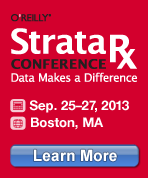There is a storm brewing in Healthcare. Doctors have been in charge of healthcare for a long time, and have become comfortable, sometimes even arrogant, with their authority and power. But dumb data beats smart doctors every time. Forward thinking doctors are embracing data, with surprising grace and humility. Others are having much more trouble adjusting.
Doctors, historically, have been the “end of the discussion” on clinical matters. Doctors make the diagnosis, they make the calls in the surgery suite, they get to decide if someone is suffering enough to justify pain medications, they frequently decide whether someone is mentally incompetent or merely eccentric. Our society places a lot of trust in doctors, because they have the training needed to make really hard choices.
Doctors, as a group, have been in charge of how healthcare operates for centuries. In times past, the only way to determine whether a doctor was doing a good job was to become a doctor yourself, and then perform case reviews. Even in court, if you wanted to refute a doctor, you needed another doctor.
But that time has changed. Now we have data on doctors. We have data on how they work together, on how they prescribe. We can tell whether they wash their hands well enough, and whether they use the right procedures in the right situation. In many ways the culmination of the EHR adoption is really the dawn of doctor science. We can now tell, with a fair amount of objectivity, how good doctors are at their jobs.
But doctors are very resistant to being evaluated in this way, as shown by recent polls done by acpe.org. Many doctors find the notion of subjective patient ratings on various online websites distasteful. This is interesting, since there is some evidence that online rating scores are at least aligned with more traditional, and expensive, patient surveys. Another poll from the same organization showed that doctors were split on whether CMS should release more medical claims data. Apparently, a sizeable contingent of doctors are opposed to being rated and evaluated, no matter whether the data is subjective or objective.
There is a valid reason for doctors to have a dim view on both patient ratings and claims data. Both data sources are biased in different ways.
Claims data are particularly problematic. Some doctors feel that they should have privacy with regard to how much they are paid by the Federal Government (via Medicare and Medicaid). Which is reasonable, except for one hiccup. Using claims data as a source, it is not possible to describe precisely what a doctor is doing without also describing how much they have been paid with reasonable accuracy. Without describing precisely what a doctor is doing, there is no way to even begin determining whether a doctor is doing a good job. It may still be impossible to tell whether a doctor is doing a good job, but at least the data science community would have some place to start. You know.. that whole necessary but not necessarily sufficient line.
Claims data is severely limited–it is not, by any stretch, good data. Doctors know this and are reluctant to endorse it as a data set.
But rejecting bad data is a valid response only when you are proposing some better data source. Claims data is much better than patient anecdotes in terms of data richness, whether you favor Yelp or HCAHPS.
I am put in the position, almost daily now, to advise people on which doctors to work with based on data that I have. I can happily say that my data set (DocGraph) is likely the best available data for making these kinds of decisions. But “best” does not mean “good”. What I can do with bad data now is impressive to healthcare administrators, because the alternative is trusting in blind luck, which is how healthcare has been coordinated before now. This is a standard that I am comfortable beating.
If you are uncomfortable with the notion that someone like me is advising on the hiring and firing of doctors with less than perfect data (I certainly am) then you should consider letting CMS know that they should release as much “better” data as possible. They have a request for public comment that will be open for a few more days. Now is your chance.
As we shift from using no data, to bad data, to better data, and ultimately to good data, we need to be fair to doctors regarding where we are. But we already have enough data to know when a doctor performs badly. Given what we already know, simply resisting evaluation is not an attitude that is going to pay off for doctors. This is not the kind of movement that you can opt out of. Medical science used to be so complex that it was impossible to evaluate, that is changing. Medicine has not gotten any simpler, but our tools for managing complexity have improved manifold. Medical technology has accelerated, but medical culture has yet to catch up. The scrutiny phobic medical culture is changing. Slowly, painfully, but it is changing.

Strata Rx Heath Data Conference — Strata Rx brings together the diverse communities driving innovations in big data analytics for health care. Learn about the transformation of health care through big data and how to position your company to benefit from these trends. Learn more.
